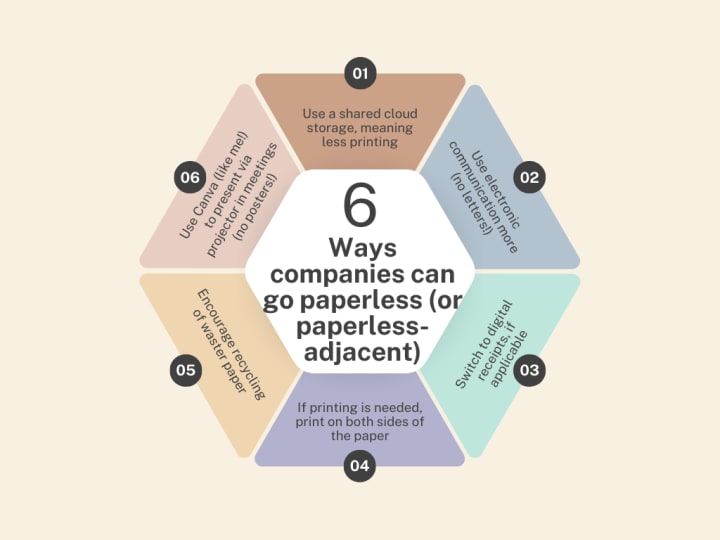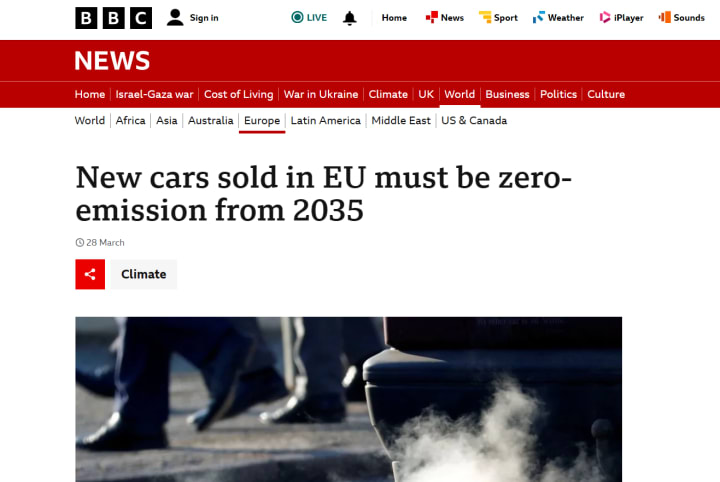I start work later in the morning, so I was asleep in my nice and cosy environment when I heard the letterbox on my door flap. It doesn’t have a dampener of any kind, so when mail comes it works almost like a notification sound and doubles as an alarm, waking me up way too early.
Forget about the letter for now and think about the concept of mail: isn’t it interesting that physical mail is still a thing?
Most things in our lives are becoming “smart” or “eco-friendly” and that has been the trend for at least a decade if not more — in a substantial way I mean, as of course environmental awareness existed for many more years than that.
Reducing Emissions
Just a couple of days ago I was watching a YouTube video about Formula-E (electric Formula racing) and in it, they mentioned that Europe passed a law that will ban the sale of new internal combustion cars in 2035. You can watch the video here
That law is quite significant because it will quickly change the way we all travel and, in a further decade, it might even make it so that the only non-electric cars in existence will be antiques and collector items. Cities around the UK, including Glasgow where I live, started introducing more low-emission and ultra-low emission zones (LEZ and ULEZ) opening up the doors for the electric vehicle takeover.
Just before the final voting was done on the EU law, Germany, along with a few other countries, wanted to add an exception for vehicles that use e-fuels (which is a CO-2 neutral fuel). This does still work towards lowering emissions, but is that an indication that we aren’t yet ready to go all-electric? Or is it just a middle ground we need to accommodate until we reach the final goal?
Governments and other interested parties are even meeting every year at the COP conference talking about climate change and ways to improve emissions and “reverse” the damage we did to the environment.
As a side note, COP26 in 2021 took place in Glasgow and I remember one of the most talked about things was that Leonardo DiCaprio attended. I mean, I like Leo, but should he be a headliner for the event? Then again, it did get people to look at COP26 who otherwise wouldn’t be the wiser, so I guess there’s always a silver lining if you look hard enough.
Going Paperless
Anyways back to the main point.
One of the big ideas talked about when it comes to the workplace being more environmentally friendly is going paperless; using less paper means less waste and fewer trees being chopped down. Of course, it also saves companies money on buying paper and ink and the general operating costs of printers, so overall it’s a win-win situation.


The annoying thing about this is that despite going paperless being encouraged, having a physical letter is still essential sometimes. Many places, for example, ask for proof of address and specifically cite physical letters (utility bills etc.) as being what is accepted. Doesn’t that undermine the whole “going paperless” endeavour?
This kind of shows that for us to affect the environment in a meaningful way, it needs to be a collective effort, because even this simple example I gave shows just how conflicting practices in industries can affect the overall objective of helping the environment.






Pretty nice post. I simply stumbled upon your weblog and wanted to mention that I’ve really enjoyed browsing your weblog posts.
After all I will be subscribing for your feed and I am hoping you write once more soon!
That’s great to hear! Thank you for reading my posts, and I hope to see you more often ☺️